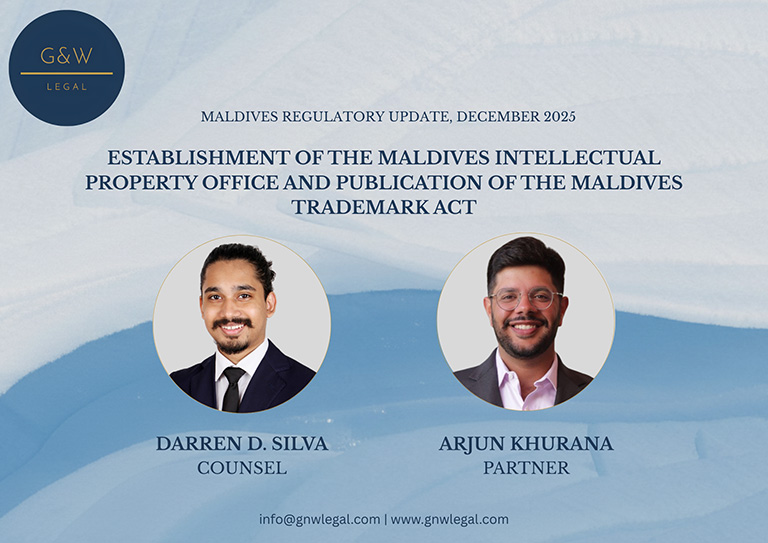
Supreme Court rules that a Senior's Reprimand at Workplace for Official Duties is not Criminal Offence Of 'Intentional Insult'
In a recent case, the Supreme Court (“SC”) ruled in favour of a senior employee (“Senior”) on the
grounds that a senior’s reprimand at the workplace in the course of his official duties does not
constitute a criminal offence relating to ‘intentional insult’ under Section 504 of the Indian Penal Code (“IPC”).
In the present case, the complainant employee’s (“Employee”) case was primarily based on the
allegation that her Senior had scolded and reprimanded her at the workplace, pursuant to which she lodged a First Information Report (“FIR”) before the police complaining about the act, which subsequently led to the filing of a chargesheet against the Senior under Section 504 of IPC to initiate criminal proceedings against him. It was the case of the Senior that the alleged act was without any intention, and he was only making a query from the Employee about her lackadaisical approach toward the discharge of her duties, albeit in a brusque manner.
The SC reiterated a well-settled position of law that in order to entertain a challenge to an FIR or a chargesheet, it has to be seen whether the ingredients of the offence that the accused has been charged with are prima facie made out or not. Based on the facts, the SC observed that the highest allegation levelled was that of scolding the Employee thereby causing her mental harassment, which the SC held to be insufficient to fulfil the ingredients of Section 504, i.e., ‘intentional insult causing provocation to the other person to cause breach of public peace.’ The SC relied on a catena of judgments to ascertain when an abusive language takes the shape of an intentional insult and concluded that a senior’s admonition cannot be reasonably attributed to mean an ‘intentional insult with intent to provoke’ under Section 504, provided that the admonition relates to matters incidental to the workplace covering discipline and the discharge of duties therein. The court also opined that if the interpretation advanced from the prosecution side is accepted, it may lead to gross misuse of liberty in workplaces.
This ruling clarifies that workplace reprimands made in the course of official duties, without intent to provoke a breach of peace, do not attract criminal liability under Section 504 IPC. While this offers reassurance to employers, maintaining professional communication remains crucial to avoid legal and workplace disputes.
Supreme Court Reiterates that Payment of Lumpsum Compensation Could be Better Remedy than Reinstatement with Back Wages in Certain Cases
The SC has reiterated in a recent judgement that, in certain cases, a grant of lumpsum compensation could be a more appropriate remedy in cases of wrongful dismissal of an employee, instead of reinstatement with back wages.
In the present case, the concerned employee (“Employee”) was terminated from his role as a bus driver from a State-level Road Transport Corporation (“Employer”) for being involved in a motor vehicle accident. Over the course of multiple years, he challenged his termination before the Labour Court and the Bombay High Court, which held that the employer’s inquiry was fair and that the termination was valid. While the aforesaid proceedings were ongoing, the family of the victims of the accident initiated claims for compensation at the Motor Accidents Claims Tribunal (“MACT”), where purportedly the Employer had taken a contrary stand that was actually in favour of the Employee. The Employee applied for review before the High Court which ruled in favour of the employee, therefore, the Employer appealed against it before the SC.
The SC realised that the Employer was found to have made submissions which constitute as unethical conduct in relation to termination of the Employee. It noted that while the Employer had held an inquiry and terminated the Employee’s job for being involved in a road accident, at the same time it had also deposed before the MACT that the accident was not the Employee’s fault. The SC observed that the Employer indulged in suppression of the truth and misled the court by non-disclosure of material evidence.
The SC, while granting relief to the Employee, considered various judicial precedents on this aspect and noted that a shift in the courts’ approach on awarding full back wages is clearly discernible. On such basis, the SC concluded that ordering back wages is not an automatic relief- the courts have to make reasonable fact-finding exercise before granting the same. The SC observed that it was important to ascertain whether the dismissed employee was gainfully employed post termination, i.e., whether the employee was unemployed for some time following his termination, employed in a manner to sufficiently meet his livelihood, or whether he took up the employment for bare survival. On the basis of this, courts may grant a lumpsum compensation instead of reinstatement with back wages as a more appropriate remedy.
This ruling provides relief to employers by reaffirming that employment reinstatement with full back wages is not automatically granted in wrongful termination cases. Instead, courts will consider factors like post termination employment before deciding on an appropriate remedy, such as lump sum compensation.
Supreme Court Clarifies Dismissal for Moral Turpitude Sufficient for Forfeiture of Gratuity, Does Not Require Criminal Conviction
The Supreme Court clarified that a criminal conviction is not a prerequisite for the forfeiture of gratuity under the Payment of Gratuity Act, 1972 (“Gratuity Act”). The Court held that the language of the Gratuity Act is clear that forfeiture of gratuity could be done only where the termination of employment is due to riotous or disorderly conduct or any act which constitutes an offence involving moral turpitude committed in the course of employment.
In this case, the employee was terminated for suppressing his actual date of birth to secure employment. While no criminal proceedings were initiated by the Employer for establishment of fraud, the Employer denied gratuity to the Employee on the basis of fraudulent conduct. The Supreme Court reaffirmed that the Act does not require a criminal conviction for an offence involving moral turpitude— rather, it is within the Disciplinary Authority’s discretion to determine whether the misconduct qualifies as an offence involving moral turpitude. If so, gratuity can be lawfully forfeited.
This ruling provides greater clarity and discretion to employers in cases of serious misconduct. It confirms that gratuity forfeiture does not hinge on a criminal conviction, reducing the need for lengthy legal proceedings. However, where such disciplinary enquiries are required, a well-structured disciplinary process will strengthen the employer’s position in case of future legal challenges.
Karnataka Labour Department Finds No Legal Violation in Recent Infosys Termination of Personnel
In recent news, Infosys has let go of over 300 trainees at its Mysore campus, citing their failure to clear compulsory internal assessments. Post such termination, the Nascent Information Technology Employees Senate (“NITES”), a union advocating for the interests of IT/ITES employees, filed a complaint with the Ministry of Labour and Employment (“Union Ministry”) for action. Subsequently, the Union Government issued notice to the Karnataka Labour Department to commence investigation, the interim report of which has been released. After a review of the terminations, the Karnataka labour department has found no violations of labour laws by Infosys. The department’s inspection revealed that the individuals in question were engaged as trainees under an apprenticeship program and did not have an employer-employee relationship as no appointment letters had been issued. They also added that government cannot intervene in the selection process of any company. The government’s final report, expected soon, will be submitted to the State government and the Union Ministry.
While the IT industry has historically operated on performance-based employment decisions, this incident highlights growing scrutiny of hiring and termination practices, particularly regarding apprenticeships. If the final report affirms the interim findings, Infosys may be legally in the clear, but reputational concerns and further government scrutiny could still arise. Given the evolving regulatory landscape, it remains critical for companies to ensure that their trainee programs and termination processes are aligned with statutory provisions and best practices to avoid legal and reputational risks.
Supreme Court Quashes Workplace Harassment Case Attempting to Transform a Civil Dispute into a Criminal Matter
The SC recently quashed a workplace harassment case against former employees of an IT company, ruling that the allegations arose from an employment dispute exaggerated into a criminal matter. The G&W Legal employment team successfully represented the employer across multiple legal proceedings, securing favourable outcomes at every stage.
The case involved a complaint by a female employee (“Employee”) who alleged to have been coerced to resign through physical assault, harassment, and use of abusive language. An FIR and chargesheet was filed against two officers of the employer entity in 2014, however, the SC found no direct evidence supporting these claims. It also noted inconsistencies in the complainant’s statements, leading to the dismissal of allegations against the accused.
The SC reaffirmed that forced resignation is a civil dispute rather than a criminal offense and emphasized that employment grievances should not be misused to initiate criminal proceedings. The judgment reinforces the distinction between workplace disputes and criminal misconduct, preventing the misuse of the legal system against employers. It also reassures employers that baseless allegations, lacking factual support, may not withstand judicial scrutiny, reinforcing the need for a fair and evidence-based approach in such cases.
Supreme Court Reiterates that Acquittal in a Criminal Case does not Exonerate an Employee from Disciplinary Proceedings
The SC reaffirmed that acquittal in a criminal case does not automatically exonerate an employee in disciplinary proceedings due to differing standards of proof. In this case, a bank branch manager (“Employee”) was dismissed for misappropriating funds, causing financial and reputational loss to the employer entity (“Employer”). Despite misconduct being proven by the Employer in the inquiry process, he was acquitted in the criminal proceedings filed separately and resultantly reinstated into employment by the High Court. The Employer challenged this reinstatement before the SC.
The SC ruled in favour of the Employer, emphasizing that an acquittal in a criminal case does not automatically exonerate an employee in disciplinary proceedings, as the standards of proof differ. The SC noted that the internal inquiry followed principles of natural justice, and the employee had admitted to mistakes during cross-examination, with documentary evidence supporting the charges. Since there was no factual dispute regarding the misappropriation and breach of bank regulations, the SC upheld the employer’s decision to penalize the employee. However, considering the Employee’s 21 years of unblemished service and the reimbursement of misappropriated funds, the SC reduced the penalty, instead of ordering reinstatement.
Process on Provident Fund transfer on change of employment simplified – need not be routed through present or past employer
On 15 January 2025, the Employees’ Provident Fund Organisation (“EPFO”) issued a notification dispensing the requirement of routing the online transfer claim of a member of Provident Fund Account through either the past or the present employer. The requirement has been removed for certain transfer cases specified in the notification based on the registration status of the UAN (“Universal Account Number”), date of allotment of UAN and its linkage with the Aadhaar of the employee. As a result of this, in majority of the cases, employees would be able to reach out to EPFO directly (instead of routing the request through past or the present employer) for transfer of PF upon change of jobs.
Gujarat High Court Rules Leave Encashment is a Constitutional Right of Employees
In a judgment of the Gujarat High Court (“Gujarat HC”), it was held that denial of leave encashment to an employee by an employer is a violation of his/her constitutional rights.
In the present case, the concerned employee (“Employee”) joined a State-level Municipal Corporation (“Employer”) in 1975 and held various roles but was repeatedly reverted to lower posts due to failure in departmental exams. After filing a civil suit against the reversion order, he was given a final chance to reattempt the exam in 2012, which he declined, leading to his reversion to the lower post again. He resigned on March 6, 2013, without notice pay, but his resignation was unaccepted, and he remained absent from work till he retired on April 30, 2014. Post-retirement, he sought leave encashment, which the Petitioner denied, citing unauthorized absence from work. The Labour Court ruled in his favour, which the Employer challenged before the Gujarat HC.
The Gujarat HC upheld the Labour Court’s decision, emphasizing key legal principles. It ruled that an employer’s failure to respond to a voluntary resignation within the stipulated timeframe results is deemed retirement, as per the service rules governing the Employee. The Gujarat HC also reaffirmed that claims under the Industrial Disputes Act, 1947 are maintainable when an employee has a preexisting right, which was evident in this case as the Employer had recognised that the Employee had earned leaves in his leave credit.
Additionally, it held that an employer cannot deny leave encashment on the grounds of unauthorized absence without initiating disciplinary proceedings or providing proper intimation. Relying on constitutional principles, the Gujarat HC reiterated that leave encashment is a vested right akin to salary and cannot be withheld without statutory justification. Consequently, the petition was dismissed for lack of merit, and the Labour Court’s order was upheld.
For employers, this ruling underscores that denying leave encashment without proper disciplinary action or statutory justification can be deemed unlawful as it must be honoured unless expressly forfeited by law. Employers must ensure timely responses to resignations and adopt clear, legally compliant policies regarding employee entitlements to avoid similar liabilities.
Kerala High Court Rules Complaint Made under POSH Act Without Allegation of Sexual Harassment Cannot be Proceeded With by ICC
In a recent case of the Kerala High Court (“Kerala HC”), it was held that if a complaint made to the Internal Complaints Committee (“ICC”) of the employer entity does not constitute ‘sexual harassment’ under Section 2(n) of the Sexual Harassment of Women at Workplace (Prevention, Prohibition and Redressal) Act, 2013 (“POSH Act”), the ICC cannot proceed with the complaint.
In the present case, the dispute was with respect to a female employee (“Employee”) who had a verbal and physical altercation with the Manager of one of the branches of the employer entity, post which the employee filed an ICC complaint. The Kerala HC stated that the issue that needs to be considered is whether the complaint filed by the employee discloses allegations of sexual harassment as defined under the POSH Act. It reviewed the facts of the case and determined that even if the complaint is believed to be correct, the only allegations are with respect to the language used by the Manager and the insult caused to the Employee.
Thus, the Kerala HC held that due to the absence of ‘sexual harassment’ under the POSH Act, the ICC does not have jurisdiction to take cognizance of such a complaint and issue notice to the Manager. Accordingly, the notice issued to the Manager was set aside.
This ruling emphasizes that while the notice was issued at the preliminary stage to allow the ICC to investigate whether the allegations met the criteria of sexual harassment under the POSH Act, the ICC must first establish a prima facie case of sexual harassment before issuing such a notice.
Madras High Court Rules that Intent is Irrelevant in Cases of Sexual Harassment if Behaviour is Inappropriate or Unwelcome
The Madras High Court (“Madras HC”) held that the act of sexual harassment itself is given significance and not the intention behind the same.
In the present case, a female employee had brought a complaint to the employer entity’s ICC against the Service Delivery Manager (“Manager”) on grounds of inappropriate behaviour. The ICC determined the Manager’s behaviour as amounting to sexual harassment and recommended him to be made an individual contributor without giving any supervisory role. The Manager challenged the recommendations of the ICC on grounds of principles of natural justice of non-fairness of procedure before the Labour Court, which reversed the ICC’s findings. The employer entity had filed the present appeal against such order of the Labour Court.
The Madras HC observed that in cases of sexual harassment, a rigid standard of reasonableness could not be applied, as the privacy, secrecy, and safety of victims were equally important. Referring to a US Supreme Court case, the Madras HC held that in cases of sexual harassment, the test to be applied is not that of a reasonable man but of a reasonable woman, which is different due to differing power dynamics.
The Madras HC emphasized that the crux that mattered was not the accused’s perception of what constitutes as decentconduct but how the actions were received and felt by the other person. Concluding that the respondent’s gestures were unwelcome and fell within the definition of sexual harassment, the Madras HC underscored that conduct causing discomfort or embarrassment qualifies as such under the law.
Delhi High Court Rules Unreasonable Non-Compete Clauses are Unenforceable Post-Separation of Employment
In a recent Delhi High Court (“Delhi HC”) case, it was reiterated that non-compete clauses that are unreasonable are unenforceable post separation of the employee from the employer entity.
In the present case, it is alleged by the company (“Employer”) that the concerned employees (“Employees”) engaged in competing business activities and diverted business opportunities from the Employer using client lists they gained during the course of their employment, in breach of the confidentiality and non-compete agreements signed by the Employees. For such determination, the Delhi HC analysed whether the client lists referred to could be considered proprietary information and whether the knowledge of such information rises to the level of confidential information or trade secrets. For client lists to be considered as such, they must have economic or business value that requires safeguarding against competitors. The Delhi HC held that this was not the case as the employer failed to show how the list is truly proprietary or holds economic value.
The observations were based on the rationale that mere creation of client list followed by a claim of confidentiality over it does not bestow a monopoly. Rather a competitor even when aware that a potential client has business with other players, will still have the right to approach such business to canvas their own business. It is ultimately the customer’s discretion to decide the entity they wish to transact with.
The Delhi HC reiterated that post termination non-compete clauses must be reasonable and necessary to protect trade secrets and confidential information. The Employees’ use of general industry knowledge, gained during their employment with the Employers, cannot be prohibited unless it is shown that such knowledge constitutes confidential or proprietary information which the Employer had failed to show in this case. The Delhi HC held that the injunction sought by the Employer would curtail the Employees’ ability to seek future employment or business opportunities. Such restrictions are contrary to public policy, as enshrined in Section 27 of the Indian Contract Act, 1872.
It was clarified however, that this ruling will not affect the merits of the final case, as presently the Delhi HC was only considering the question of whether this matter warranted grant of interim injunction.
For employers, this ruling reinforces the long-standing principle that it is of utmost importance to maintain confidentiality of all information including client lists, such that the documents are adequately marked confidential, and there is also sufficient records maintained by employer that will help provide adequate evidence in court when litigating against breach of such restrictive covenants. These agreements between the employer and employee should clearly define confidential information essential to the company’s operations and include a robust non-compete clause that effectively binds employees.
Supreme Court Upholds Right of Temporary Employees To Seek Permanent Employment When Serving Over a Long Period of Time
In a recent case, the SC held that employees on a part time basis whose roles, over time, have evolved into ongoing and core functions integral to the company’s operations may merit to be employed as regular employees (i.e., on permanent basis) based on principles of fairness and equitable treatment.
In the present case, certain employees who were engaged for cleaning/house-keeping roles (“Employees”) had filed a dispute before the labour authorities seeking the employer to regularise their employment, i.e., declare that they are permanent employees. When the labour authority had dismissed their claim, their services were abruptly terminated by the employer entity (“Employer”) without any show cause-notice. The Employees challenged the termination in courts and ultimately pursued litigation till the Supreme Court. The Employer defended its position by stating that the Employees were merely temporary workers or “part time”. The SC extensively discussed landmark judicial precedents and held that procedural formalities cannot be used as a basis to deny permanent employment to persons engaged on part time or temporary basis, despite them performing the duties that were perennial in nature over a considerable period.
The ruling, which dealt with government employment, also highlighted the misuse of temporary contracts as precarious employment arrangements. These arrangements are marked by a lack of benefits, job security, and fair treatment—rights that a regular employee would typically receive. To minimise exposure to legal risks, employers must distinguish between genuine fixed term contractual employees, whose tenure may be extended by mutual agreement, and those whose contracts are repeatedly renewed over multiple years, effectively making them perform the same tasks as regular employees without the corresponding benefits.
Disclaimer: This publication is for general information purposes only. It does not purport to provide comprehensive legal or other advice. The publisher and the contributors accept no responsibility for losses that may arise from reliance upon information contained in these publications.















